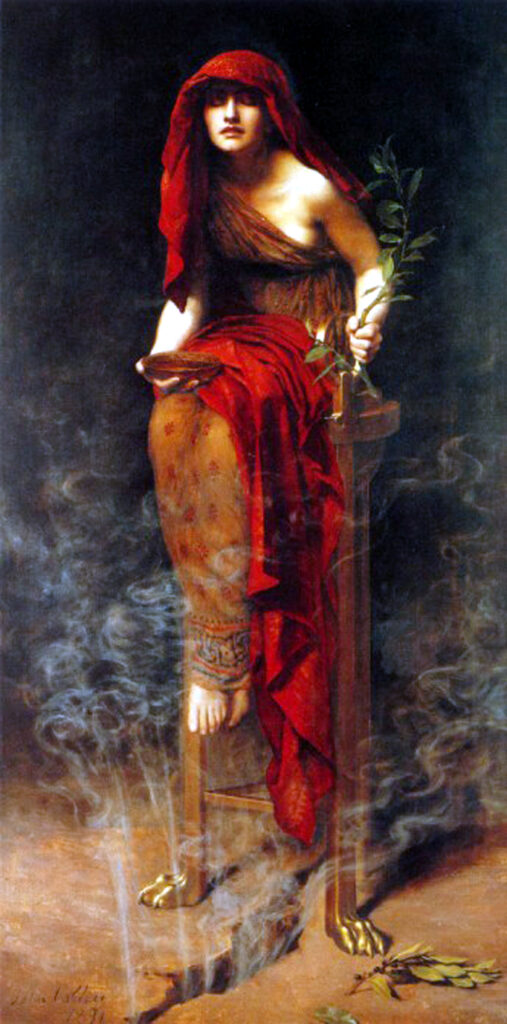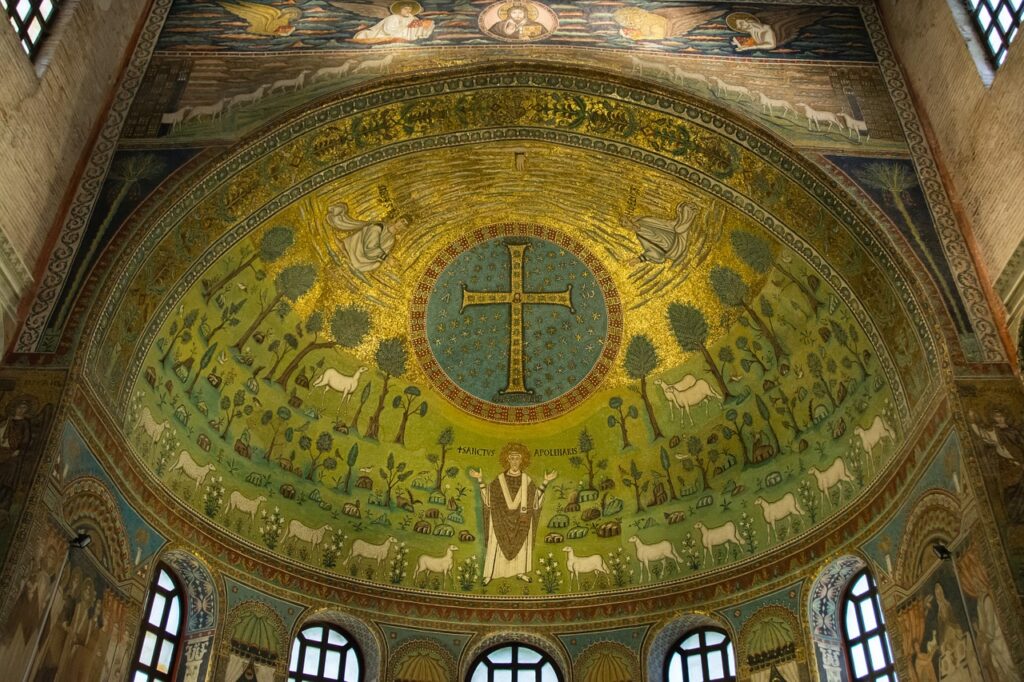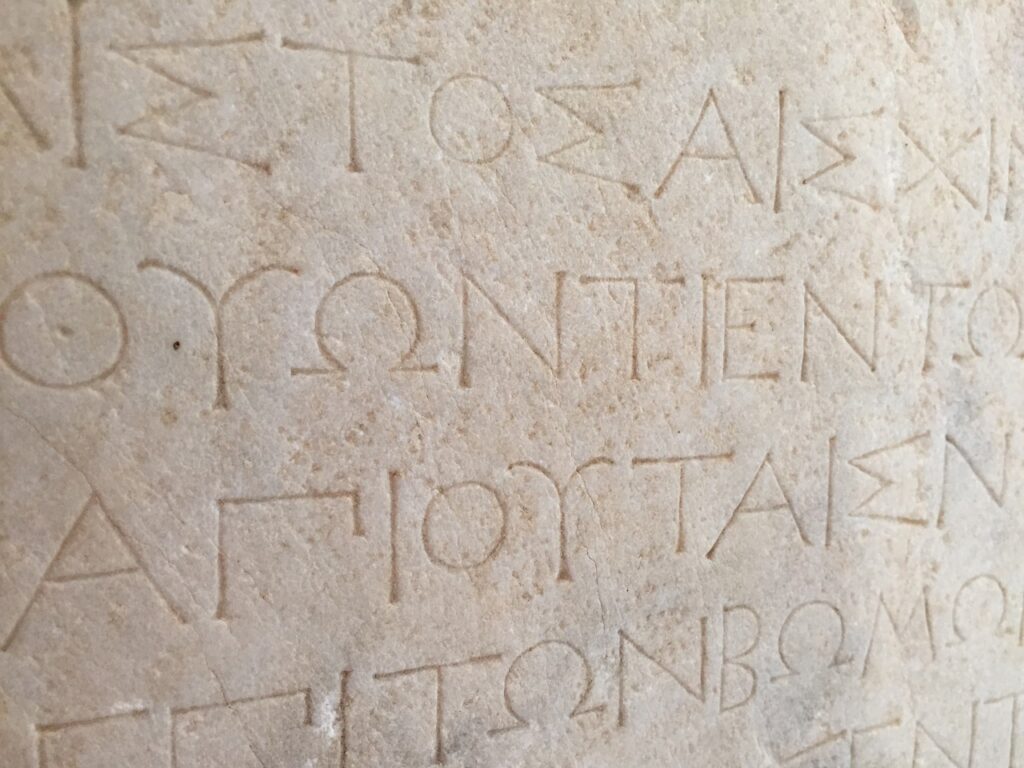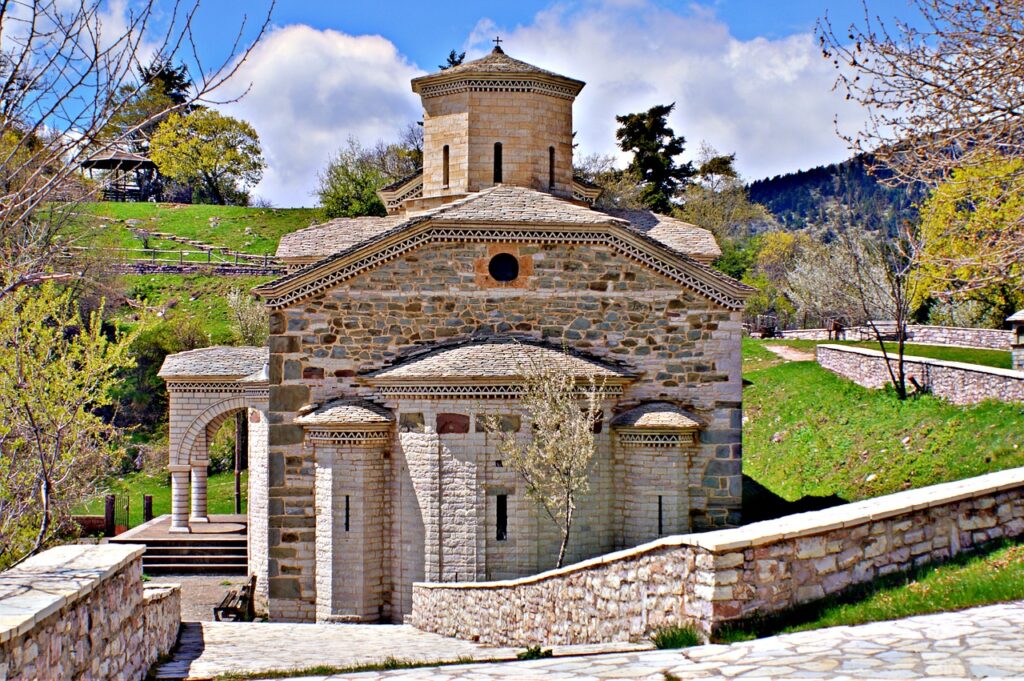
Pythia, is known worldwide as the mysterious woman who gave oracles at Delphi in ancient Greece and her words were respected and feared by all Greeks. Actually, Pythia was not the name of one sole woman but the title of a number of women who served that office. It derives from ancient greek “pinthanomai” (πυνθάνομαι) which means to find out, but also to the Python, the sacred snake guardian of Delphi which, like all snakes, was a symbol of wisdom and secret knowledge. Snakes live in the earth, and in Greek mythology. Python was son of Gaia (Γη) which means Earth (geometry, geography, geology). Read more


